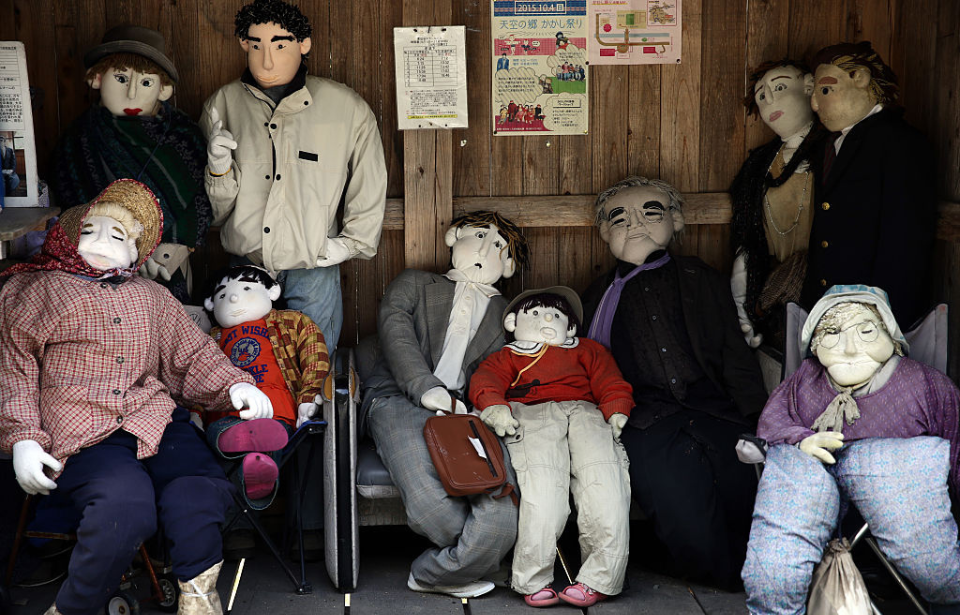The small village of Nagoro, Japan, has a truly unique population. Although there are still human inhabitants in the town, there are approximately 10 times more dolls. Over 350 of them were created by a local artist, Tsukimi Ayano, to resemble real people. They can be found all over the village, which led to it becoming a fascinating tourist attraction.
Nagoro, Japan
Nagoro, now better known as the Village of the Dolls, is located on the island of Shikoku in Japan. As with many similar places on the island, the population has declined drastically in recent years.

This is happening all over the country, but it is especially noticeable here as there were never a large number of villagers to begin with. Once there were roughly 300 inhabitants, but by September 2019, that number had dropped to 27.
Aging population
As of 2020, Japan as a whole had 35 million people over the age of 65, a staggering 29 percent of their total population. This number is only expected to grow further, reaching about 35 percent by the year 2040.
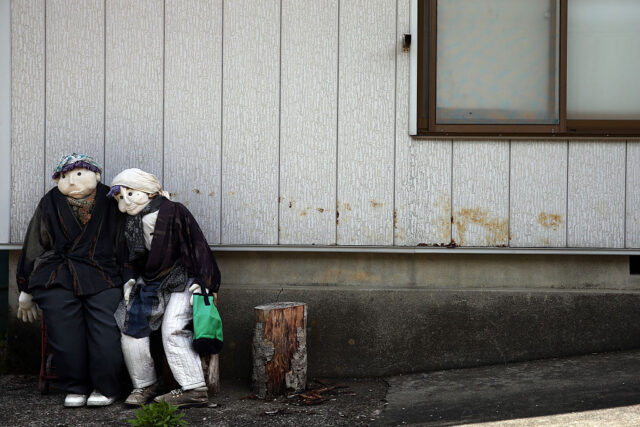
Many Nagoro citizens fall into this category, which is why you can often drive through the town and not see a single real person, only the dolls.
Tsukimi Ayano
The dolls were created by artist Tsukimi Ayano as a way to help combat loneliness among those who remained in Nagoro. She lived in the area when she was younger but moved away with her family, like so many others.
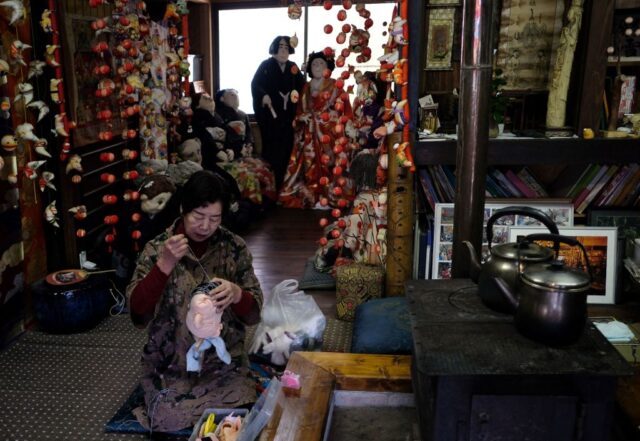
It was in the early 2000s that she decided to move back to help care for her aging father, who still lived there. The first doll she ever created was in his likeness, which she placed in one of the village fields.
Kakashi
These dolls are called kakashi, which translates to scarecrows in English. Ayano makes them from various materials, including newspapers, cotton, straw, wire, and paint.
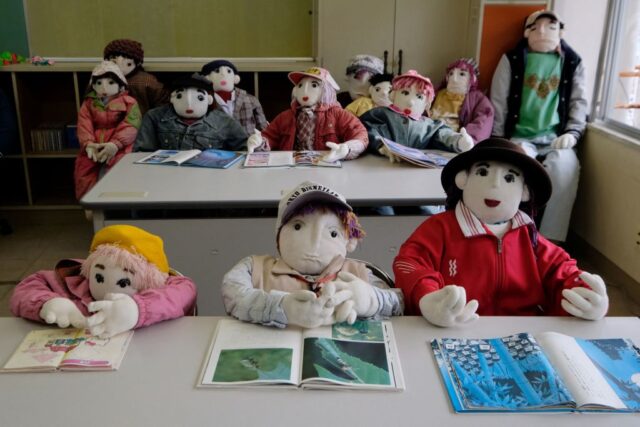
They are then put into human clothing. Supposedly it takes her three days to make one of her creations, a relatively quick turnaround considering they are all life-sized.
Recreating the past
Although the dolls are made of old clothing stuffed with straw, like a typical scarecrow, they aren’t intended to protect the crops.
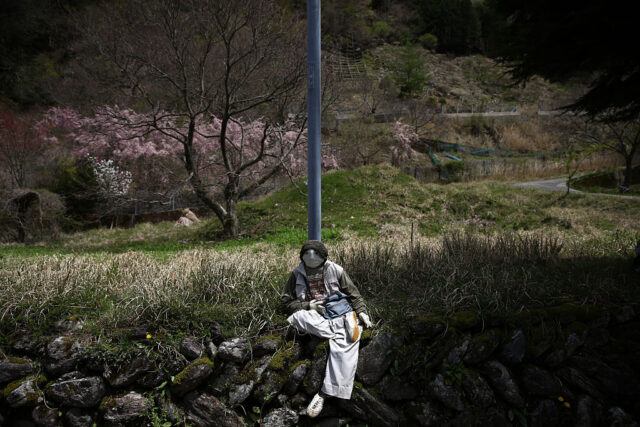
Many of them, like Ayano’s doll of her father, were created to look like people from Nagoro who had died or moved away from the village. They help make it look like the area is lived in and thriving.
Placed around the village
Since Ayano started this project, she has put together over 400 dolls. Some of them act as replacements when others get damaged, while 350 “live” permanently in various spots around the town.
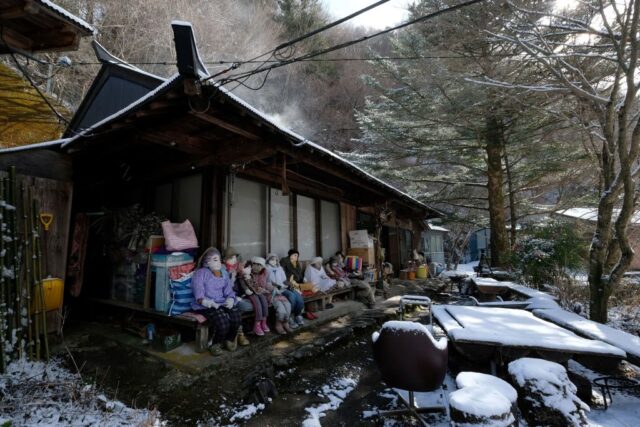
They can be found in a variety of places: sitting at a bus shelter, by the river, in the middle of the fields, working in gardens, enjoying the view from the porch of buildings, and even inside the abandoned school.
No more children
It may seem strange that the only school in Nagoro is completely abandoned, but this also has to do with the drastically shrinking population.

Over 18 years ago, the last child was born in the village. With no more births since then, it didn’t make sense for the school to remain open. The school, which once ran until sixth grade, closed in 2012 after its last two students graduated.
A cheerful place
Thanks to Ayano, the school was filled up once more with children, even if they were dolls. She said, “I wish there were more children because it would be more cheerful. So I made the children.”
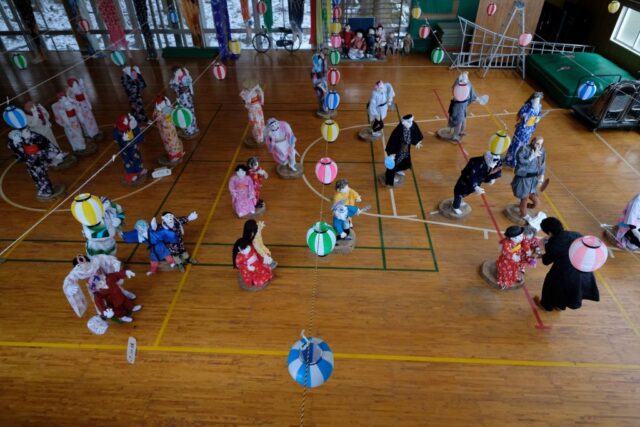
They are spread throughout the building. Some of them can be seen playing sports in the gymnasium, while others are posed behind desks in the classrooms. Ayano has created more than 40 dolls for this location alone.
Special students
There were even dolls created in the likeness of teachers to sit in the classrooms as well. Two of the school dolls are more special than the others, as they were made by the last two students to graduate.
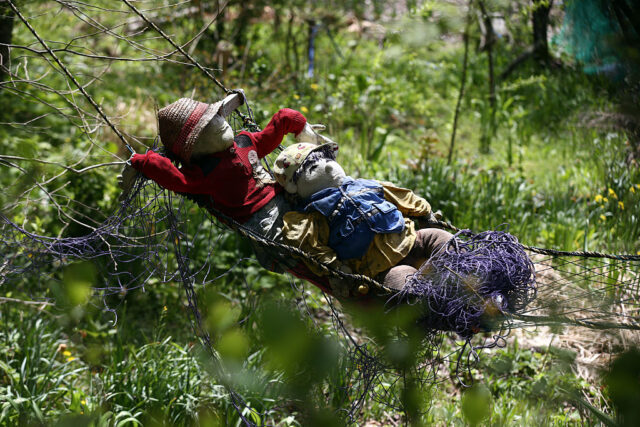
When the students finished their schooling there, Ayano helped them make their own dolls that looked just like them. They then dressed them in their own clothes, and the dolls were placed in the school.
A memorial
There are many other dolls in the village that were made in honor of former citizens. Ayano told NPR that she has made many like this, including one named Miyako Ogata.

She said, “she’s a grandmother who passed away two years ago. But she used to sit like that in front of the house, so I made the figure exactly like her (…) it feels like she’s still here.”
Made-up characters
While some of the kakashi were made to look like former Nagoro villagers and students, there are others that Ayano created just for the fun of it. Many of them have been placed in special scenes, like weddings.
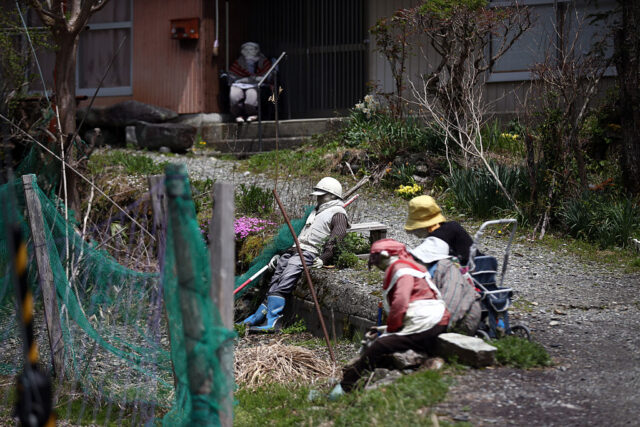
Many of these characters have their own names that the artist gave them, making them just as much part of this village of dolls as the remaining people.
A tourist attraction
Despite Nagoro being a small and primarily deserted town, it has become extremely popular with tourists who, thanks to the internet, heard about the Village of the Dolls. Ayano said, “Before I started making scarecrows, nobody stopped by. Now many people visit here…I hope Nagoro will become lively again and many people come here for sightseeing.”
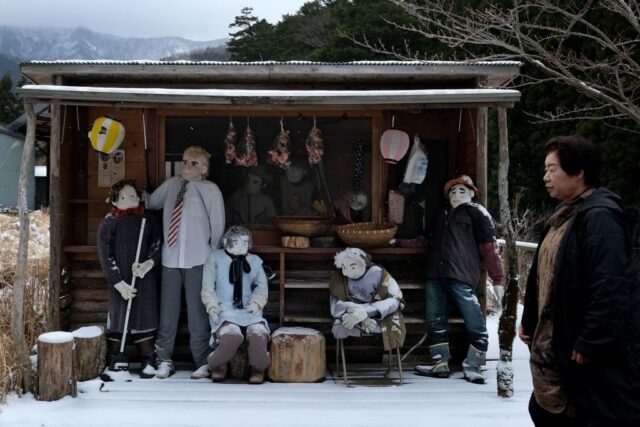
More from us: This Japanese Shrine Is Completely Rebuilt From Scratch Every 20 Years
Although they can be seen anytime, Ayano puts on a special dolls festival in the town, which draws many tourists. By now, the dolls so drastically outnumber the humans in the village that Nagoro is a very unique, if not somewhat creepy, destination to visit.
